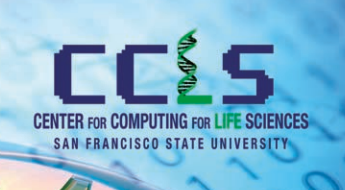Panel discusses life sciences and the cloud
March 21, 2011 -- More than 70 researchers and practitioners in computing and life sciences gathered at SF State on March 15 for the first in a series of seminars hosted by the Center for Computing for Life Sciences (CCLS).

The inaugural seminar, moderated by Bob Dunkle, President and CEO of A.B.E.S Partners, focused on the evolution of cloud computing in the life sciences – an alternative platform for high performance computing that is changing how activities like DNA sequencing are conducted.
A panel of industry experts from Amazon Web Services, Stanford University, Complete Genomics and DNAnexus discussed how cloud computing is influencing the speed and cost of scientific discovery. Cloud computing allows users to employ infrastructure, application and storage space services for a small fee. Users only pay for what they use and don't have to set up infrastructure or buy software. The cloud allows researchers to access information and collaborate instantaneously over large distances, though panel members noted that the cloud is not just renting server space.
"You are no longer bound by the size of the room, what you're bound by is your idea and your budget," said Deepak Singh, Senior Business Development Manager for Amazon Web Services. "You have the ability to quickly try out ideas without having to worry about the cost of failure or getting bigger than you'd planned too quickly."
Cloud computing has been particularly useful for start-ups and in the biotechnology sector, where genetic sequencing and other work involving DNA produces a significant amount of data.
Stanford Bioinformatician Joel Dudley said clinicians studying diseases could take DNA and gene expression information and compare it to other publically available genetic information using the cloud. He said this approach allowed him to easily share data and have his research verified and reproduced.
"A lot of biomedical data is trapped in silos," Dudley said. "I think there's a lot of innovation that can occur using the cloud."
"This first seminar set the stage for future CCLS panels exploring important and timely topics in this fast-changing field at the intersection of computational, biological and health sciences," CCLS Director Dragutin Petkovic said.
For more information about the CCLS and future seminars, visit http://cs.sfsu.edu/ccls/index.html
Share this story:
